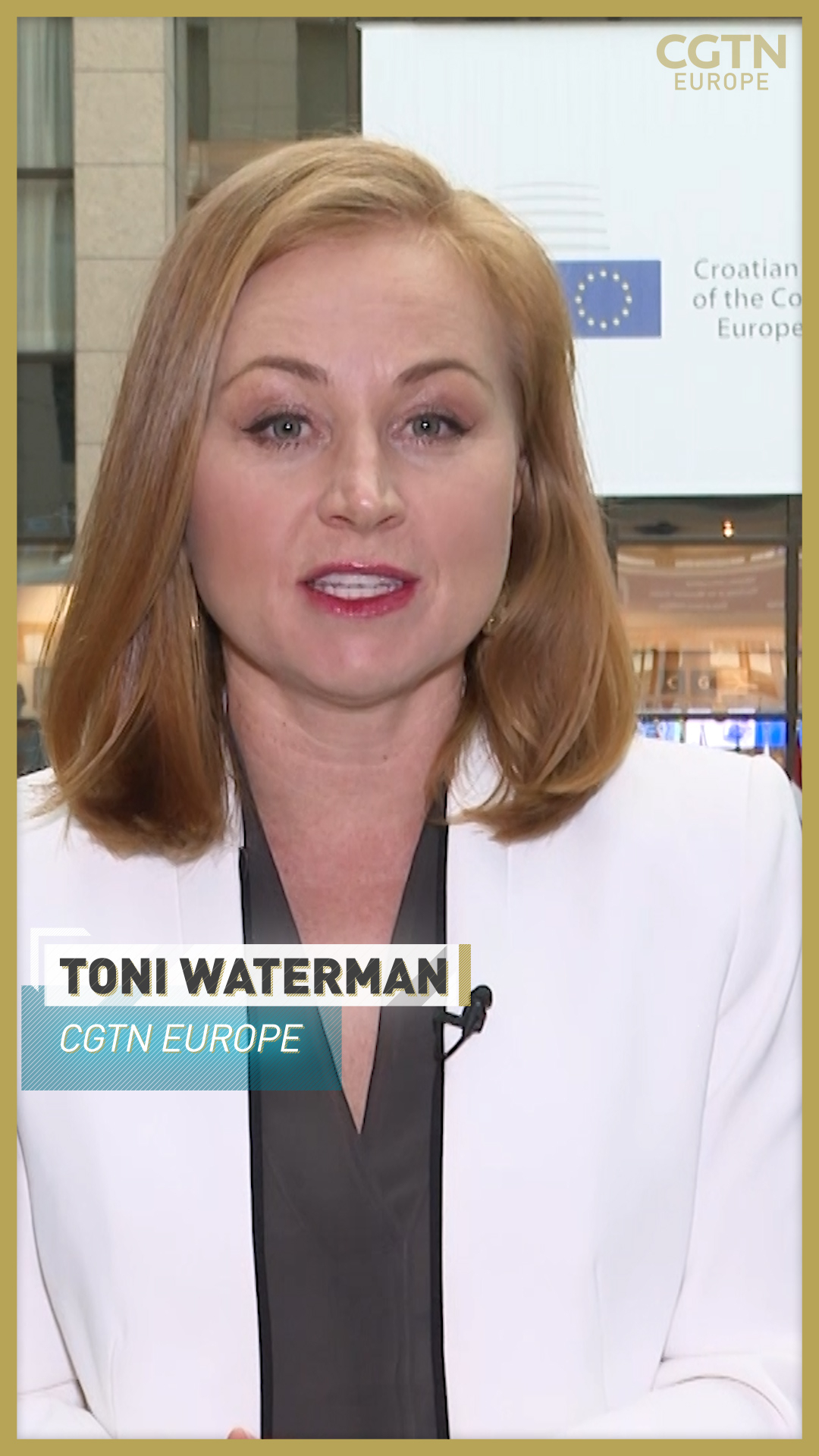02:22

European health ministers have failed to convince EU member states to lift bans on the export of personal protective gear amid a deepening coronavirus crisis.
Germany, France and Czechia are not allowing equipment such as masks, goggles and gloves to go abroad, to avoid shortages at home.
The move was roundly criticized at a special meeting of European health ministers in Brussels on Friday.
"This is not the spirit of the European Union," said Belgian health minister Maggie De Block.
The bloc's commissioner for crisis management, Janez Lenarcic, said the commission "does not favor measures that would favor one member state at the expense of others."
Coronavirus developments in Europe on Friday:
- A fifth patient has died from COVID-19 in Spain as the number infected with the virus went from 102 to 365 cases. Fernando Simon of the Spanish health ministry told AFP all those that have died were elderly, from high-risk categories or had pre-existing conditions.
- UK coronavirus cases have risen sharply, from 115 to 163, the Department of Health said. One person in the UK has so far died from COVID-19.
- Two British Airways baggage handlers have tested positive for the virus, the airline had confirmed. Both men are based at London's Heathrow Airport.
- Lufthansa, Germany's biggest airline, has said it will cut its flight capacity by 50 percent over the coming weeks in order to cope with the slump in demand.
- French President Emmanuel Macron has said people should "avoid visiting our elderly relatives" so as to not expose them to COVID-19. He ironically made the comments while visiting a retirement home in Paris.
- Italy's schools and universities remain closed and the country reported 49 more deaths, bringing the total to 197. The number of confirmed COVID-19 infections has grown by 778 to 4,636.
02:50

The masks export bans
On Wednesday, Germany announced a ban on the export of all medical protective clothing, including masks, gloves and protective suits, except in the case of international humanitarian emergencies.
Meanwhile, France has been stockpiling supplies and Prague has banned the export of respirator face masks and initiated price caps to prevent consumer hoarding.
China is the world's largest exporter of personal protective equipment and weeks of closed factories has disrupted supply chains. EU governments are now looking for ways to increase local production, De Block said the Belgian government may ask textile companies to start producing medical gear such as masks. The country now has 109 confirmed cases.
To help ensure supplies are spread across the bloc, the commission launched a tender for the joint procurement of medical equipment such as masks and goggles on Monday – two weeks after health ministers said they backed such a measure. It has led to accusations that the EU has been too slow in its response.
Malta's health minister, Chris Fearne, said Brussels needs to start preparing for the procurement of a vaccine now, so that once one becomes available, Europe won't be caught on the back foot.
"Even though we don't have a vaccine yet, and it may be months, it's important that we initiate the joint procurement process now," he said on his way into the meeting. "There is a process that has been ironed out over a number of years and it's now time to put it in place."
Medicine shortage? No need to panic, yet
Along with equipment, there are also growing fears of a potential shortage of medicines. Health ministers were debriefed by the European Medicine Agency on Friday and, for now, that doesn't seem to be a problem.
"Getting clarity from the European Medicine Agency in relation to having no immediate threat in medicine supplies in the Union, I think was welcomed," said Ireland's health minister Simon Harris.
According to Eurostat data, six percent of the EU's medicinal and pharmaceutical imports came from China in 2018.
But that doesn't capture the full picture because China also produces some of the key ingredients other countries use to manufacture antibiotics, painkillers and diabetes drugs. India, for example, is the world's largest generic drugs exporter, but it sources the bulk of its raw pharmaceutical materials from China.
France's National Pharmaceutical Academy says 80 percent of the active pharmaceutical ingredients used in Europe are made outside the European economic area, much of it in Asia.
France, which imports about 40 percent of its drug ingredients from China, has already called for more manufacturing "sovereignty."